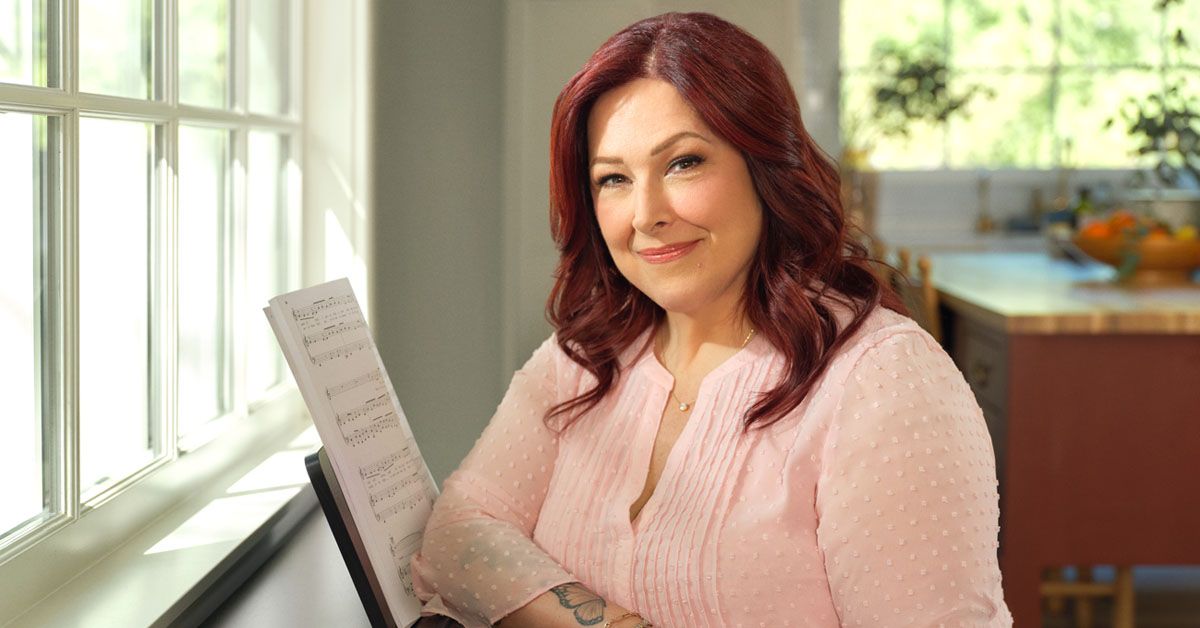Wilson Phillips’ Carnie Wilson on Living With Depression: ‘It Ebbs and Flows’
- Carnie Wilson of the ’90s pop group sensation Wilson Phillips opens up about her mental health journey.
- The “Hold On” singer and daughter of Beach Boys’ Brian Wilson is raising awareness about tardive dyskinesia (TD), an involuntary movement disorder linked to some mental health medications.
- In the “Connecting with Carnie” campaign, Wilson interviews people living with TD, their care partners, and other healthcare professionals.
Singer Carnie Wilson is revered as a member of the iconic pop music trio Wilson Phillips. The group and their acclaimed 1990 single “Hold On” made a comeback in the 2011 movie “Bridesmaids.”
Now, the hit song is back at the forefront of Wilson’s mind as she plays her part in helping erase the stigma surrounding mental health.
Don’t you know, things can change
Things’ll go your way
If you hold… on for one more day
“The point is, people don’t have to wait anymore to talk about their mental health. Music is a good inspiration for us all,” Wilson told Healthline.
From the time she was a child, Wilson shared that she navigated mental health challenges.
“I grew up with some depression as a young girl. I remember being bullied and teased,” she said. “I was always coming home very sad because I was made fun of because of my weight, and that helped contribute to my depression.”
Her father, Brian Wilson, a member of “The Beach Boys,” and her mother were also singer-songwriters. Growing up around a “rock and roll lifestyle” made her feel anxious, she said.
“I still suffer from some anxiety and depression, and many years ago, I turned to drugs and alcohol, and I think it exacerbated my depression… but it was really about escaping and hiding and not wanting to feel,” said Wilson.
Now 20 years sober, Wilson prioritizes her mental health daily.
To help others open up about their mental health, she teamed up with Neurocrine Bioscience to launch “Connecting With Carnie” to support people with uncontrollable movements caused by tardive dyskinesia (TD).
The involuntary movement disorder is associated with the use of certain mental health medications to treat bipolar disorder, major depressive disorder, schizophrenia, and schizoaffective disorder.
TD affects at least 800,000 adults in the United States, yet as many as 60% remain undiagnosed.
For the initiative, Wilson interviews people living with TD, their care partners, and other healthcare professionals so they can share their journeys, experiences, and expertise to help others.
Greg Mattingly, MD, CEO of Midwest Research Group and co-chair of Psych Congress, explained that signs of TD typically consist of abnormal, involuntary, and repetitive body movements, which can be rapid and jerky or slow and writhing and vary in severity.
“Even mild TD movements can have a negative impact on patients physically, socially, and emotionally,” he told Healthline. “The movements can often cause unwanted attention, social isolation, embarrassment, and difficulties with physical activities like chewing, swallowing, and walking.”
According to a survey conducted by The Harris Poll on behalf of Neurocrine Biosciences, 56% of people with TD canceled social plans and avoided others or public outings due to their symptoms, and 86% said their movements made them feel judged or stared at.
While Wilson does not have TD, she said she can relate to the stigma associated with it.
“I have suffered from… Bell’s palsy,” she said. “I know what it feels like to deal with something that is abnormal with the face, and so that also really made me feel for people who have TD.”
Healthline spoke with Wilson to learn more about her mental health journey, how she copes, and why she is advocating for TD.
This interview has been edited and condensed for clarity and length.
How does music affect your mental health?
Wilson: Music has always been a part of my life. [As a child,] there was always music playing.
Obviously, my father, the Beach Boys, and so many people coming over to the home, and knowing that was my destiny, but what I realized when I first started singing was the healing that came from harmony. So when we formed Wilson Phillips, it had a deeper meaning for us.
Can you share more about your depression?
Wilson: My psychologist years ago diagnosed me with low-chronic depression. There are days when I wake up and my outlook is just a little more fearful, and those are the days that I want to isolate. Then there are days when I feel hopeful and I want to seize the day. The point is that it ebbs and flows, and that’s OK.
Did a 12-step program help you stay sober?
Wilson: Yes. I have been sober for 20 years, and I am very involved with being surrounded by people who are just like me, or I am like them.
I also believe there is a higher power. I was on my knees this morning asking God for a beautiful day to give me the opportunity to reach a lot of people today and in the coming years.
What inspired you to help others?
Wilson: When we don’t understand something, we’re fearful. I’m a people person, and I just want to connect with people. I feel like my being open to say, “I have felt fearful or anxious or weak’ or ‘I didn’t want to feel things’ or ‘I need help’ helps others. I share that when I did reach out [to others], my healing began.
I believe that people who suffer from mental illness are sensitive and they’re beautiful people because they feel deeply. I know this from growing up with family members who suffered from mental health issues. [I want others] to see that there is recovery, there’s hope, there’s treatment, there’s a solution.
It’s very easy to brush it off and say, “My uncle has depression, and he has these movements, and I can’t deal with it because I don’t understand it.” That’s where I want to draw the line.
I want to stop people from being scared to reach out to someone they know and love, and for people to be their own advocate. We have to advocate for each other. That’s the only way we’re going to be better in this world. We need that connection.
Tell us more about the ‘Connecting with Carnie’ campaign
Wilson: It’s making my heart so full.
A year ago or so, I didn’t know what TD was. When I learned about it, my heart went out to people who suffer from TD because I’m a control freak by nature. My husband always says, “Stop tying to control everything.” I want the safety. I want the balance. I want to have control over things.
I’m especially sympathetic and empathetic to people who can’t control these movements, and these movements can be so debilitating. If it’s extreme, they have trouble sleeping, driving cars, living normal lives — and then there’s just the very subtle movements like blinking of the eyes or movement of the tongue.
I’ve heard stories about school teachers who stopped being a teacher because they are so embarrassed of their symptoms and it is my mission, my goal, to raise awareness and say it’s okay to talk about what we struggle with and to ask for help.






